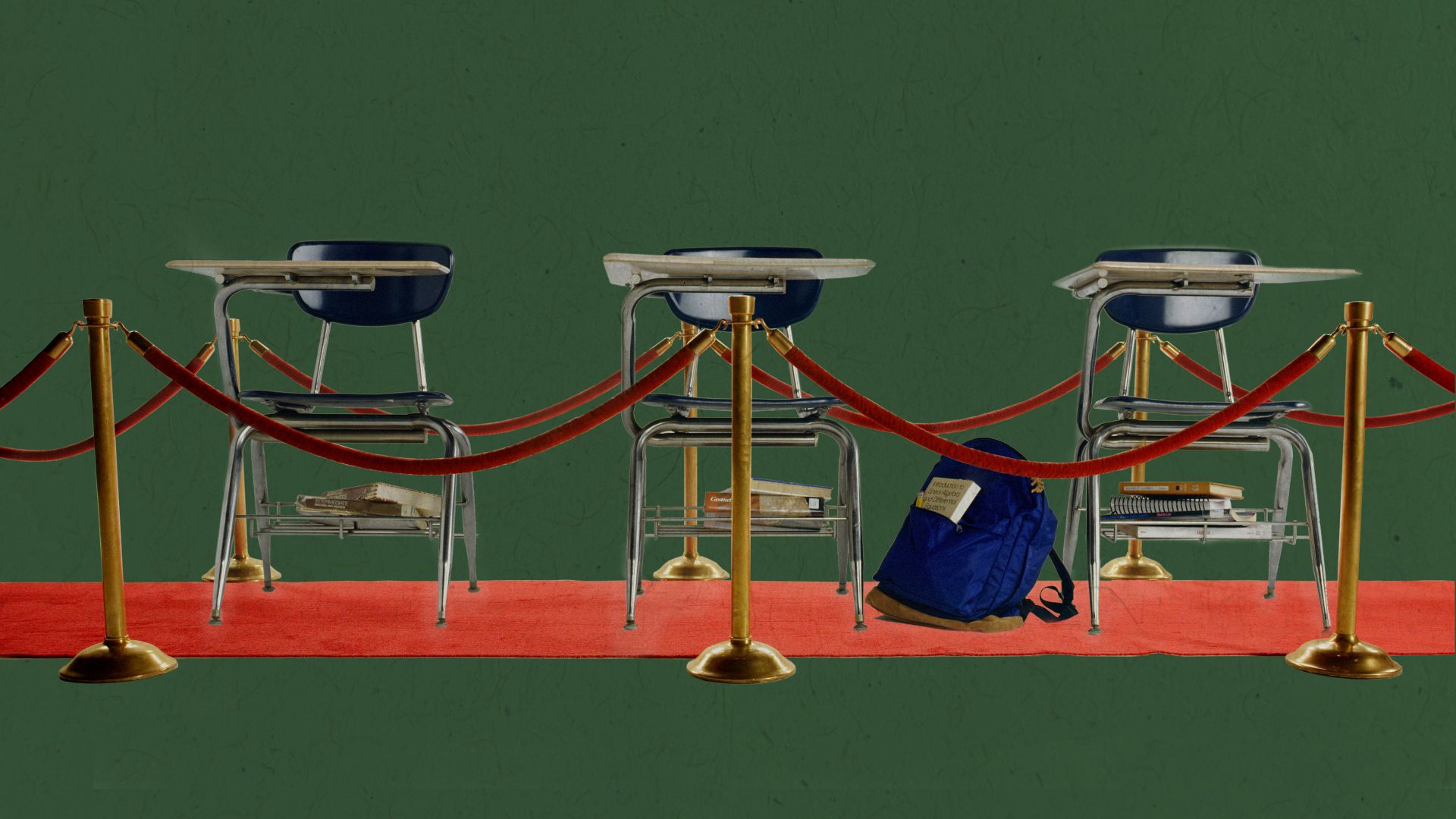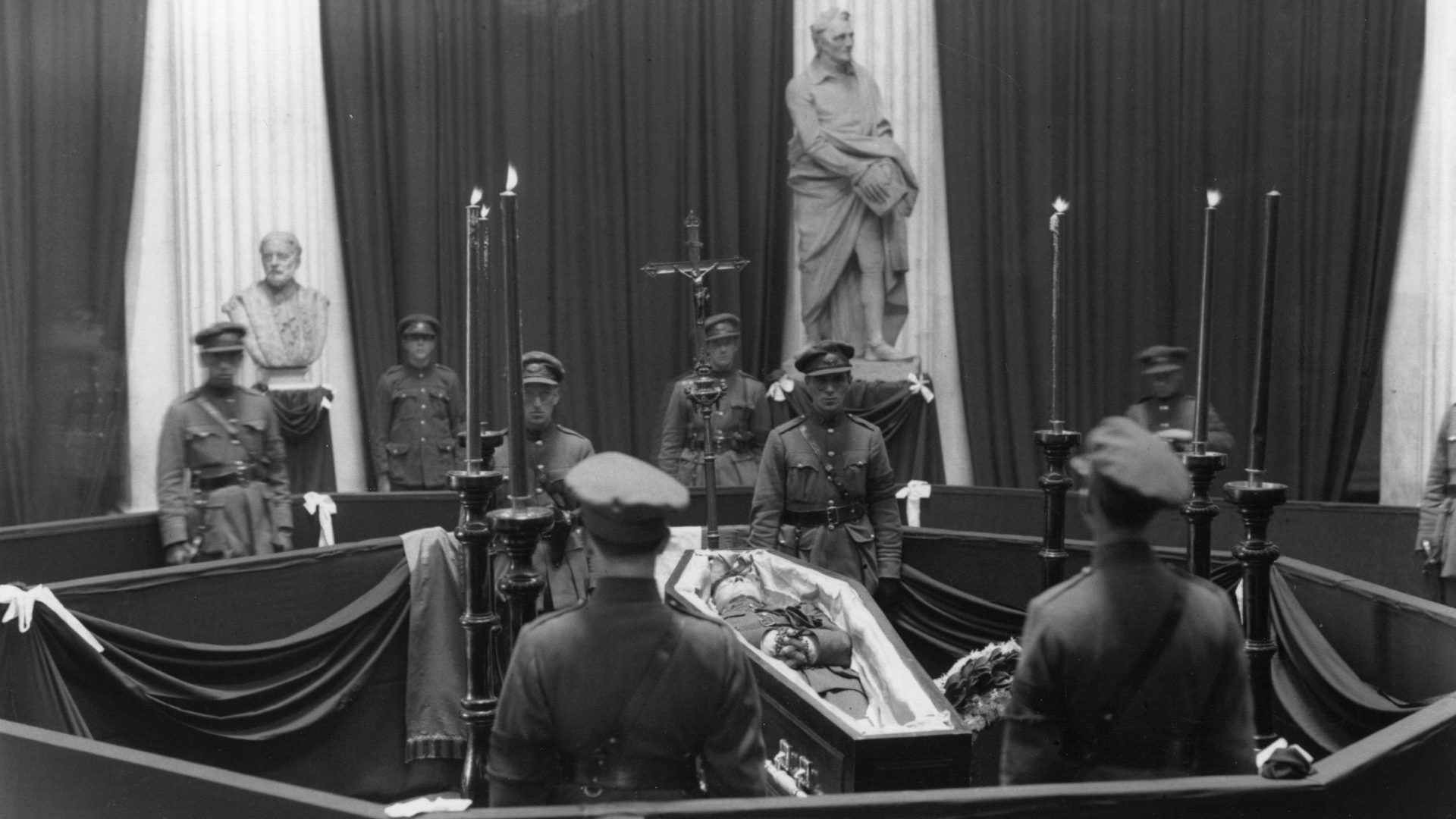So, the A-level results are out, and it is a story of winners and more losers than usual. Two years of school closures, online learning, mysterious algorithms, and teacher-assessed grades to replace cancelled exams have left their mark.
Last year 44% of A-level exams were graded at A and A* compared to 25% in 2019. Some schools, particularly those in the private sector, benefited disproportionately. Rightly or wrongly, the exams regulator is now tasked with gradually bringing grades back into line with pre-pandemic times. It will be a painful process and next week we get to do it all again when the GCSE results come out, although the stakes may be lower without the university admissions that depend on A-level results.
Nevertheless, this is the first sign that the exam treadmill, with all its ramifications for school reputations, the curriculum, pupil mental health and teacher retention, is drifting back to normal. There will be little meaningful questioning of what we have learned during the pandemic – the crisis of the last two years will have been put to no good use at all. Quel dommage.
In fact, Covid-19’s impact on education was revealing in so many ways. School closures exposed the gross inequalities that persist in so many children’s lives. While some were lavished with expensive digital devices and showered with online lessons, others faced the demoralising experience of having to work in cramped, possibly unsafe, homes without laptops or tablets or even a decent internet connection.
In the absence of exams, our assessment system was left naked. It reminded me of the final scenes in The Wizard of Oz when the curtain is pulled back to reveal that the great and powerful Oz is an elderly gentleman frantically pulling on a few dials and levers to exercise power and control over his kingdom. Without exams, what was left to judge pupil achievements and school performance? Absolutely nothing.
The Covid shutdown also provided an unsuspecting public with an insight into how exam grades work. How many people realised that the number of good GCSE grades that can be awarded in any given year is fixed (in a process known as comparable outcomes) to reflect that cohort of pupils’ performance when they left primary school?
This means that demonstrating real improvement is difficult and exam results are a zero-sum game. For some pupils and schools to get a good pass, others must “fail”, We all know by now which children that will be. The third of all pupils who leave school without the accepted markers of success invariably have greatly reduced life chances.
There is a better way. Very few other countries have a system quite like ours in which young people are obliged to take so many exams at 16 and 18 then forced to specialise by choosing a few subjects for A-level when they may only be 15.
A more common option is some sort of diploma or baccalaureate qualification at 18. Simply put, this type of end-of-school “umbrella” award encompasses a wider range of achievements. With imagination, we could establish something similar here.
It would be nothing like Michael Gove’s English Baccalaureate, which is a metric to judge schools on how many pupils achieve a good pass in a small number of academic subjects at GCSE. Nor would it be much like the “British Baccalaureate” that Rishi Sunak is apparently promoting in the Tory leadership contest. Maybe Sunak doesn’t know that education policy is devolved to the other GB nations and Northern Ireland, so he would have no power over what goes on in Scotland and Wales, which already has a baccalaureate qualification anyway.
The only detail he revealed in a sketchy policy announcement was that pupils should be obliged – as they are in many other European countries – to study maths and their native language to 18.
But this only scratches the surface of what a real home-grown baccalaureate could include. Imagine a qualification that every pupil could achieve at some level, which could include exam results, vocational qualifications as well as achievements in the arts, sport, project work and civic activity. This wouldn’t just broaden the definition of what we mean by a “good education”, it would also help to minimise the status divide between academic and technical routes – something that has bedevilled the English education system for generations – by unifying them under one award.
It would also be internationally comparable with other baccalaureate qualifications that blend academic and technical learning with personal development, and it would mean we could finally talk about young people’s achievement in more than just binary pass/fail terms.
Over the years I have heard all the arguments against this type of reform – the first being that focusing on a qualification at 18 would inevitably lead to abolishing GCSEs. But would that be such a bad thing? GCSEs, and before them O-levels and CSEs, were established when the school leaving age was 16. It is particularly hard to justify so many high-stakes tests when all young people are obliged to stay in education and training for another two years.
The next claim is that this type of award, in which everyone can experience success, would be a woolly, less rigorous qualification than we have now. For some of today’s cultish educationalists, anything that doesn’t allow a significant proportion of youngsters to fail, or dares to celebrate personal development, the arts, culture, creativity, and skills, constitutes a “dumbed-down education”, which is strange because parents pay a fortune for exactly those opportunities in the private sector.
This was the line that torpedoed the reforms proposal by Sir Mike Tomlinson in 2004. Tomlinson spent months interrogating the 14-19 phase of English education and argued in the end for a very gradual introduction of this type of diploma qualification. The response from the then prime minister Tony Blair was that we couldn’t ditch the “gold standard” A-level qualification.
But that shiny bauble is looking a bit tarnished today and no one accuses the International Baccalaureate of being a woolly qualification lacking in rigour. In fact, it really is an internationally celebrated gold standard, celebrated across the globe for its promise to develop “a broad range of human capacities” and requiring pupils to complete projects in creativity, activity and public service as well as achieving academic success.
There are powerful advocates for this type of reform in England. Tory MP and chair of the Education Select Committee Robert Halfon has proposed abolishing GCSEs altogether and replacing them with a baccalaureate qualification at 18. The Conservative One Nation Group also supports the baccalaureate idea and believes it would contribute to the government’s “levelling up” agenda.
Former Downing Street adviser Peter Hyman, co-founder of the Big Education academy trust, has called for a final pupil “transcript” which would give credits for a range of projects and skills over a pupil’s entire school life. Only Labour, still submerged in its policy vacuum, is yet to engage on the issue.
The lamest argument against a baccalaureate, put to me by one Labour politician, is that it would be a difficult electoral sell to parents. But I am not sure about that. Parents can now see, partly thanks to the pandemic disruption, that too much of their children’s education is driven by an exam juggernaut that crushes everything that might be enriching and life enhancing in its path.
No reform on this scale is easy and schools are understandably wary of too much change at a time when they are struggling with real-terms funding cuts and lack of national leadership – there have been four education secretaries since Boris Johnson became prime minister.
But such a radical transformation could be brought in gradually – Tomlinson suggested ten years so if his plan had been enacted we might be in a very different place today. It could also be sold as a huge investment in our country’s young people at a time they desperately need some hope. What could be more important than that?



